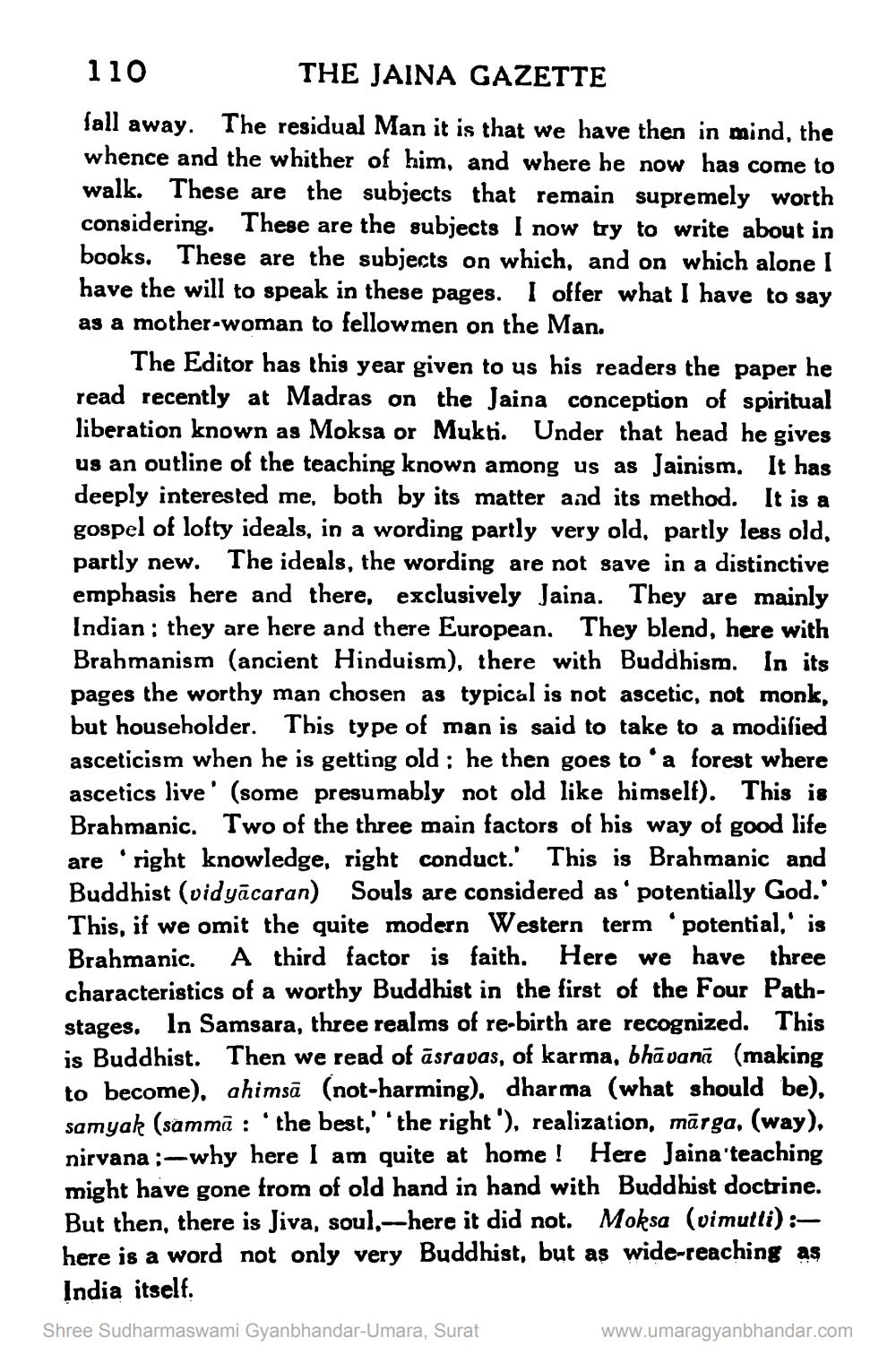________________
110
THE JAINA GAZETTE fall away. The residual Man it is that we have then in mind, the whence and the whither of him, and where he now has come to walk. These are the subjects that remain supremely worth considering. These are the subjects I now try to write about in books. These are the subjects on which, and on which alone I have the will to speak in these pages. I offer what I have to say as a mother-woman to fellowmen on the Man.
The Editor has this year given to us his readers the paper he read recently at Madras on the Jaina conception of spiritual liberation known as Moksa or Mukti. Under that head he gives us an outline of the teaching known among us as Jainism. It has deeply interested me, both by its matter and its method. It is a gospel of lofty ideals, in a wording partly very old, partly less old, partly new. The ideals, the wording are not save in a distinctive emphasis here and there, exclusively Jaina. They are mainly Indian; they are here and there European. They blend, here with Brahmanism (ancient Hinduism), there with Buddhism. In its pages the worthy man chosen as typical is not ascetic, not monk, but householder. This type of man is said to take to a modified asceticism when he is getting old; he then goes to 'a forest where ascetics live' (some presumably not old like himself). This is Brahmanic. Two of the three main factors of his way of good life are right knowledge, right conduct.' This is Brahmanic and Buddhist (vidyācaran) Souls are considered as ' potentially God.' This, if we omit the quite modern Western term 'potential,' is Brahmanic. A third factor is faith. Here we have three characteristics of a worthy Buddhist in the first of the Four Pathstages. In Samsara, three realms of re-birth are recognized. This is Buddhist. Then we read of asravas, of karma, bhāvanā (making to become). ahimsā (not-harming). dharma (what should be), samyak (sammā : 'the best,''the right '), realization, mārga, (way), nirvana ;-why here I am quite at home! Here Jaina 'teaching might have gone from of old hand in hand with Buddhist doctrine. But then, there is Jiva, soul.-here it did not. Moksa (vimutti) :here is a word not only very Buddhist, but as wide-reaching as
India itself. Shree Sudharmaswami Gyanbhandar-Umara, Surat
www.umaragyanbhandar.com




